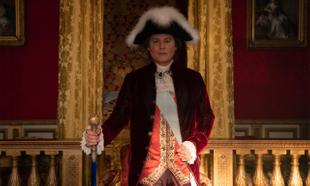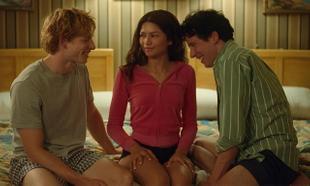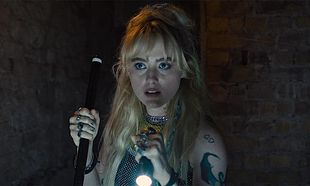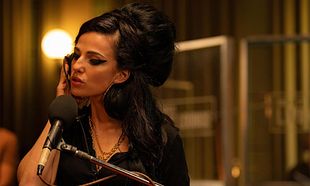Colin Firth's rejuvenation as a serious leading man rather than the comical romantic interest in Richard Curtis's rom-coms continues unabashed but he can't help raise A Single Man above being more than a series of beautifully constructed scenes than a whole film.
Adapted from Christopher Isherwood's 1964 novel, Firth plays George Falconer, an English professor in 1962 LA who is at the end of his tether. His opening narration lets us in on the story: "For the past eight months waking up has actually hurt... my heart's been broken, you see." His sixteen-year relationship with Jim (Goode), which George has kept secret, has tragically come to an end when Jim is killed in a car crash. In the midst of the blackest depression, George has decided that he will take his own life by the end of the day but, as life would have it, things keep popping up to distract him. He's got a date with close friend Charley (Moore) that he can't get out of later that evening, and handsome student Kenny (Hoult) appears at awkward times asking awkward questions...
For a first time director, fashion designer Tom Ford displays an uncanny level of confidence. As George goes about his day, the visuals are dull, grey and distant, but when he sees a ray of hope - a dog that reminds him of Jim's pet dog or when Nicholas Hoult looks at him a certain way - it's as if the film blushes; colour rushes back in, turning the cold visuals into something altogether warmer. Ford beautifully captures the brief feeling of euphoria when you stand in the sunlight for a moment before a passing cloud turns everything grey again. And vice versa. Ford's penchant for cello-lead slow-motion flashbacks over egg the pudding somewhat, though, and his perpetual close up of numerous sets of eyes is confusing. Why so many? What do they signify? Why are they in the movie and what are they saying about George? Or life? Ford's film dodges those questions, just like his leading character.
Firth's George doesn't answer questions but bats them away with another question, in an annoying psychologist technique - if you were to ask George why he did this, he would probably reply 'Why do you think I do it?' The reason can't be found in what George says, but what he isn't saying. He is a man walking around crying out for help but, because 1962 America would prefer you red than gay, he can't ask for it. So he has to smile. He has to be charming. He has to be a man. Firth is all this, with a hint of a tear in the corner of his eye. To help him out, he has the get-out of a voiceover but kudos to Ford for not overdoing it, only bookending the film with Firth's narration. Firth can include this among his recent offerings in Genova, Dorian Gray and When Did You Last See Your Father as a testament to a maturing character actor and when he's this good it's easy to forget missteps like Mamma Mia!, St. Trinian's, The Accidental Husband and Easy Virtue.










































































